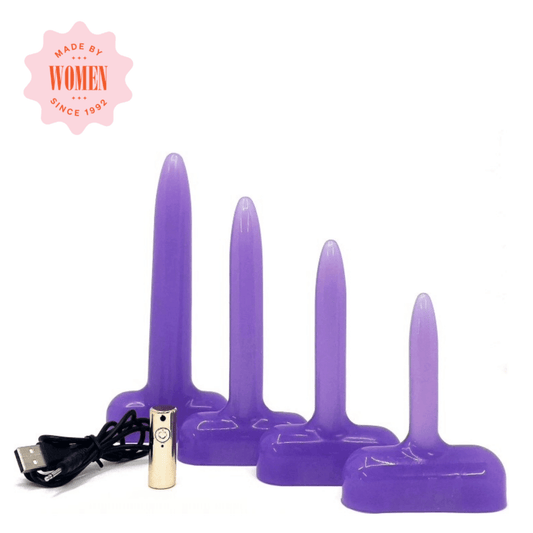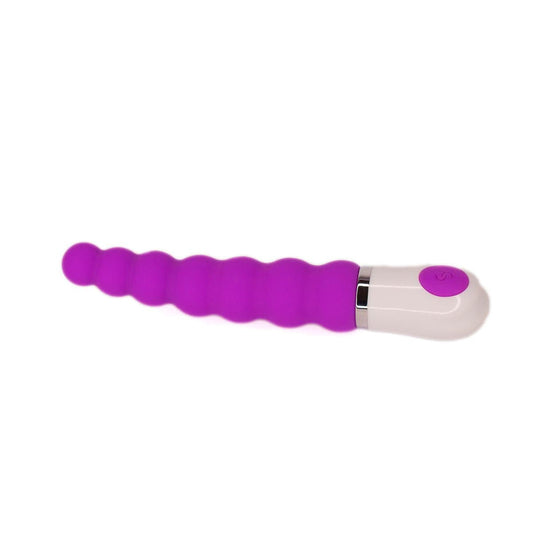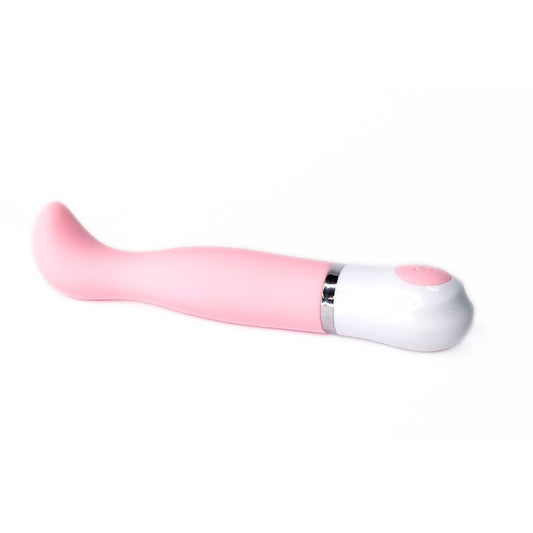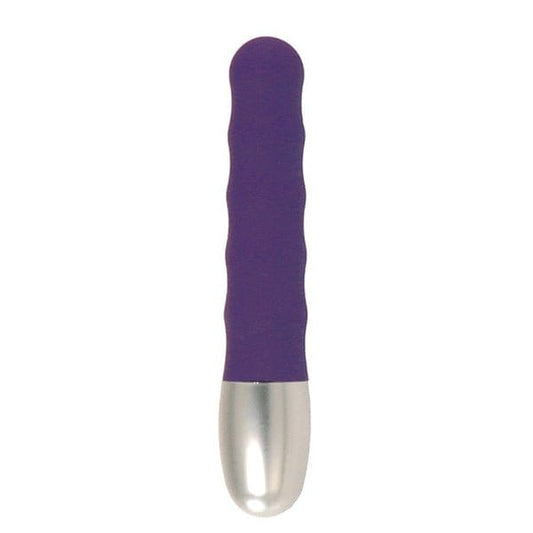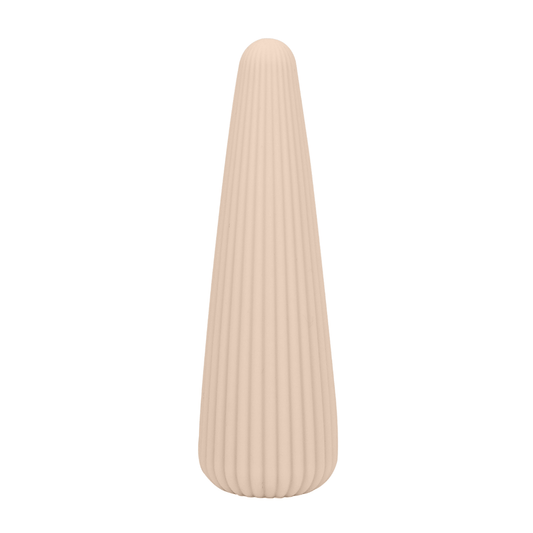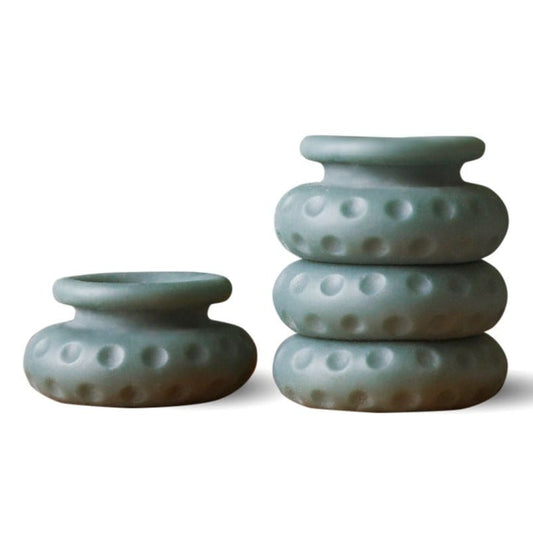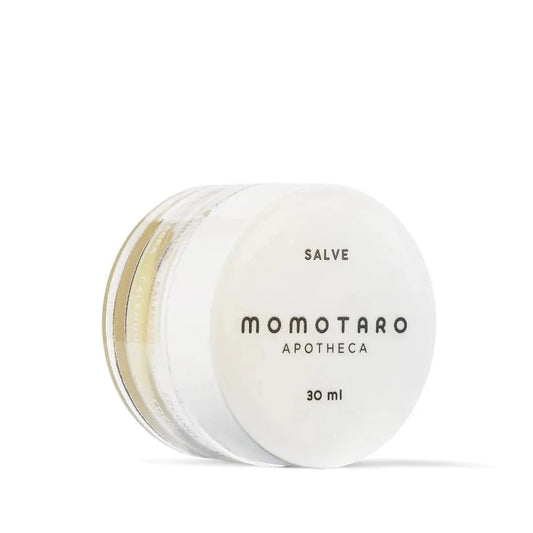With Vaginismus Awareness Day just around the corner, the team at Sh! have been hard at work talking to you about what life is like when you like with Vaginismus. Thanks to you lovely lot we've got some pretty amazing statistics around Vaginismus, that are crucial for spreading awareness.
How common is Vaginismus?
Studies tell us that at least 2 in 1,000 women & vulva-owners experience Vaginismus once in their lifetime. We think this figure is far higher. We wanted to get to the bottom of this, so we created a survey for women & vulva-owners with Vaginismus.
203 participants took part. The majority identify as cis-women, with a small number of non-binary persons joining in. We're still waiting for vagina-owning trans folk to take part.
Just over 63% fit into the category of 25-34 years old, with the rest spanning from under 18 (1%) to over 65 (1%). 30.6% of all participants believe they have always had Vaginismus.
67.7% live with primary Vaginismus, which means they have never experienced vaginal penetration without pain. 32.3% have secondary Vaginismus, meaning they have previously had enjoyable vaginal penetration (with fingers, toys or penises).
What causes Vaginismus?
Just under 50% believe the root cause of their Vaginismus to be both physical and psychological. A further 35.7% believe the condition is psychological, while 7.1% believe it to be due to physical issues. 13.3% stated that they don’t know.
- I worry that my vagina is too small – 53.8%
- I had a bad sexual experience – 53.2%
- I had a bad medical experience – 52%
- I believe that sex is shameful or wrong – 20.5%
- I have a painful medical condition (other than Vaginismus) - 19.9%
- I am menopausal - 7.6%
Common symptoms of Vaginismus
The most common symptom of Vaginismus is the inability to achieve and enjoy vaginal penetration; this is often when the person realises something is going on. However, it's not the only symptom. Vaginismus tends to also cause issues in other areas of life.
- Struggling with vaginal penetration - 95.9%
- Difficulty with smear tests - 77.6%
- Experiencing vaginal stinging or burning during sex - 77.6%
- Difficulty using tampons - 64.8%
- Inserting a finger 54.36%
How to tell if you have Vaginismus
48% of survey participants have self-diagnosed, which is a much higher figure than we expected. The problem with self-diagnosing is that even if you have a good idea of what is going on in your nethers, it’s still possible to misdiagnose. Receiving a diagnosis by a specialist is the best and safest way of getting the correct diagnosis and treatment. If you believe you may have Vaginismus, we recommend searching out a specialist or ask your regular health care professional to refer you to one.
- Self-diagnosed - 48%
- Diagnosed by a specialist - 23%
- Diagnose by GP - 21.4%
- Diagnosed by a therapist - 5.6%
- Diagnosed by a nurse - 2%
We were also really interested in finding out how participants found out about Vaginismus in the first place. Sex education doesn't cover Vaginismus; it doesn't get enough coverage in media, and it's generally not talked about. Just over 40% Googled the information, which probably ties in with the self-diagnosis.
Out of the 11.2% that learned about Vaginismus from social media accounts, many say that the Vaginismus Network is a trusted resource.
How did your health professional react when you shared your suspicion of having Vaginismus?
Shockingly, many doctors & therapists are still in the habit of recommending drinking alcohol and finding a new partner to try sex with. This is outdated and shows they have no understanding of Vaginismus and how to treat it.
'I didn’t know the condition had a name; the gynaecologist asked if my boyfriend had left me because I had Vaginismus, told me sex wasn’t the same as inserting a cold hard tampon (I’d presented with vulval pain and couldn’t insert tampons so knew p-i-v sex wasn’t going to be possible), to have some wine, loosen up and come back if I found another boyfriend.'
'They said that they never heard of it before and gave me numbing cream used for catheter insertion - told me to have a glass of wine, use the cream and have sex. It was so disheartening that it caused me to go further back into myself and not reach out for any more help for over a year.'
Finding a care team that understands what is going on is crucial. Thankfully, a number of the participants have had positive experiences. This shows that care, support and treatment is possible. Our advice is to advocate for yourself - if you believe something is wrong, insist on getting a second, third or even a fourth opinion.
'My health professional was very kind and seemed to have a lot of knowledge about the topic. At first, she wondered whether it was vulvodynia or vaginismus. She referred me to a pelvic floor physiotherapist straight away and offered me counselling with someone who specialises in women’s health. She gave me options and choices.'
Can Vaginismus be cured?
There is no quick fix for Vaginismus, but the good news is that it's possible to treat and perhaps overcome. (We say 'perhaps' as it's also possible for Vaginismus to reappear during stressful times of your life.) We realise that we didn’t ask how many participants are currently in therapy; we should’ve included this question.
There are a few vaginal dilators/trainers on the market. We are somewhat biased as we have our own Sh! Vibrating Dilating Set. We strongly believe that pleasure is possible, even with Vaginismus. Therefore, we've included a small vibrating bullet with our dilating set. This bullet can be used on its own for stimulation and warm-up before dilation, or it can be inserted into the dilator for relaxing tense nerve-endings.
- I'm not using dilators - 40%
- I'm using the hard, plastic dilators - 25.6%
- I'm using the vibrating Sh! dilators - 23.6%
- I'm using a different set of dilators - 21.5%
Really, the most important thing is that you don't feel scared of your chosen dilating set, as this will hamper treatment. Choosing dilators that appeal to you, and you can see yourself using, is essential.
Botox is a controversial treatment for Vaginismus. We included this in our survey to find out what participants think about it. 50.3% of participants said they don't know enough about it to consider it a viable option. 41.5% said a firm no, while 4.6% said they were considering botox as an option. Only 3.6% of participants have had it done.
How to have sex with Vaginismus
First of all, 'sex' doesn't have to mean penetration. Sex is a buffet of delights that can be enjoyed solo or with a partner.
- In a relationship with a man/penis-owner - 57.4%
- In a relationship with a woman/vulva-owner - 7.2%
- Single - 35.4%
Only 3.2% of single participants date regularly.
- I only talk about Vaginismus if I think we're moving towards sex - 27%
- I avoid dating because of my Vaginismus - 20%
- I friend-zone anyone who wants to date me - 5.9%
- I date regularly, and I tell dates about my Vaginismus - 3.2%
Are you sexually active?
- I masturbate - 68.7%
- Yes, with my partner and I enjoy it - 44.1%
- No, I avoid any kind of sexual activity - 13.8%
- Yes, with my partner, but don't enjoy it - 11.8%
Do you orgasm?
- Pretty much always - 46.4%
- Sometimes - 42.3%
- Never - 8.7%

Exploring on your own is a fantastic way of finding out what you enjoy. Stroke your neck, play with your nipples or try a gentle vibrator on your clitoris. Give yourself permission to explore your sexuality – you might be surprised at the immense pleasure you can experience!
How do you feel about your Vaginismus?
Last but not least, we asked participants how they are currently feeling about their Vaginismus.
- I feel depressed and broken - 66%
- I feel angry about it - 55.2%
- With more support, I can cope - 47.9%
- I've learnt how to talk openly about sex - 39.2%
- My Vaginismus doesn't define me - 36.6%
- I feel alone; the 'only one' - 33%
- I'm more sexually creative - 29.9%












